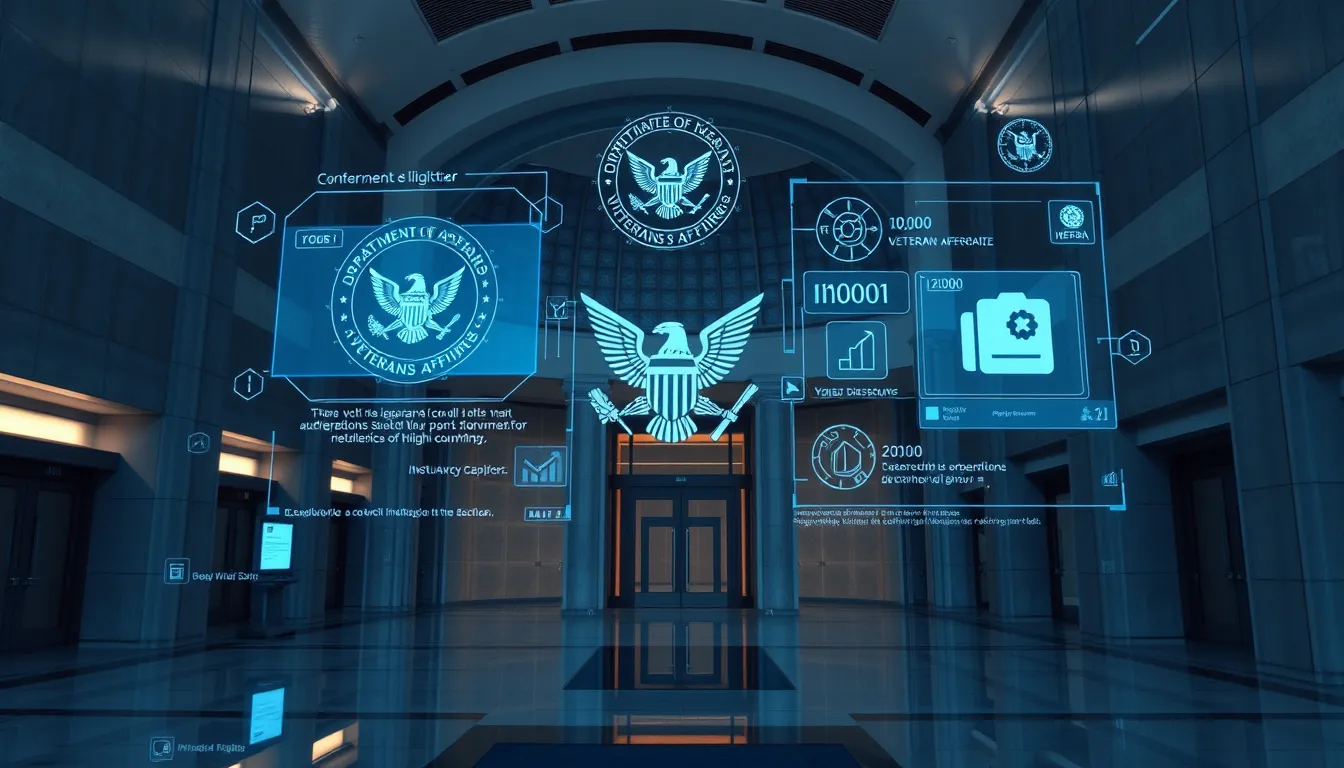Now Reading: Innovative Project DOGE Transforms Veterans Affairs
-
01
Innovative Project DOGE Transforms Veterans Affairs
Innovative Project DOGE Transforms Veterans Affairs

Innovative Project DOGE Transforms Veterans Affairs
The advent of Project DOGE marks a transformative era for the Department of Veterans Affairs. This pioneering initiative leverages cutting-edge artificial intelligence (AI) to modernize veteran services, streamline administrative processes, and improve healthcare delivery. Through secure AI implementation in VA systems, this project is setting new standards in technological efficiency and compassionate care.
Overview of Project DOGE in Department of Veterans Affairs
The Department of Veterans Affairs is embarking on an ambitious journey with Project DOGE. This innovative program is designed to incorporate artificial intelligence into daily operations, transforming how the agency manages data, schedules appointments, and delivers healthcare. The integration of AI aims not only to enhance operational efficiency but also to ensure that veterans receive timely, personalized services.
The Role of AI in Enhancing Efficiency
Project DOGE is built on the promise of secure AI implementation in VA environments. The goal is to digitize and automate many of the multifaceted administrative tasks that have traditionally bogged down the system. With AI handling data management and appointment scheduling, human errors are minimized and administrative efficiency is greatly enhanced. This secure approach also emphasizes privacy, ensuring that sensitive veteran information remains protected throughout its digital transformation.
Enhancing Veteran Services with Artificial Intelligence
Modernizing veteran services is at the heart of Project DOGE. The initiative deploys AI in several key areas:
- Data Management: AI systems are being used to analyze large datasets, helping administrators detect patterns and optimize resource distribution.
- Appointment Scheduling: Leveraging AI for appointment scheduling in veterans not only improves speed but also reduces the likelihood of double bookings and miscommunications.
- Healthcare Delivery: By integrating AI in healthcare, providers can access real-time data that aids in making more informed treatment decisions.
The focus on reducing wait times with AI is especially significant. Shorter wait times lead to faster diagnoses, timely treatments, and overall improved patient outcomes. This is a critical factor in boosting the quality of care available to veterans.
AI for Appointment Scheduling in Veterans
Integrating advanced scheduling systems is one of the standout features of this initiative. The automated appointment scheduling system uses predictive analytics to assess peak times and allocate resources accordingly. The system is designed to:
- Prioritize urgent cases based on real-time health data.
- Optimize available appointment slots to prevent overload.
- Automatically adjust schedules based on changing demand.
Through these improvements, the VA is not only enhancing operational efficiency but also ensuring that services remain veteran-centric.
Addressing Challenges and Ensuring Trust
No technological implementation is without its challenges, and Project DOGE is mindful of potential issues. One major concern is mitigating algorithmic bias in veteran services. Bias in AI can undermine fairness and accuracy, which makes transparent and secure algorithms critical. The development team is working diligently to rectify any biases and ensure that the AI decisions are based on rigorous, ethical standards.
The project also takes steps to ensure that its secure AI implementation in VA systems is both transparent and accountable. Oversight is maintained through continuous evaluations and performance audits. This proactive approach helps build trust among veterans and staff alike.
Collaborations and Modernization of Veteran Services
The success of Project DOGE relies on the collaborative efforts of technologists, policy makers, and veteran advocacy groups. These partnerships ensure that the introduction of AI serves the needs of its users without compromising core values such as privacy and equity. Officials at the Department of Veterans Affairs have expressed commitment to not only modernizing services but also preserving the essential human element in care delivery.
External collaborations, such as with industry experts and cybersecurity professionals, further reinforce the initiative. For more details on the VA’s broader modernization efforts, visit the official Department of Veterans Affairs website at https://www.va.gov.
Ensuring Data Security and Privacy
Data security is a paramount concern when deploying AI in sensitive environments. The project employs robust encryption methods and regular audits to safeguard veteran data. Its strategy also includes:
- Continuous monitoring for any security breaches.
- Frequent updates to its encryption software.
- A dedicated team responsible for overseeing AI operations.
These measures help ensure that the benefits of AI can be reaped without compromising the safety and confidentiality of veteran records.
Future Prospects and Conclusion
Project DOGE embodies a forward-thinking approach to addressing long-standing challenges within the Department of Veterans Affairs. By integrating secure AI implementation in VA environments, the initiative paves the way for a future where administrative efficiency and quality care go hand in hand. The program not only enhances operational capabilities but also sets an important precedent for other government agencies looking to modernize their services.
In conclusion, Project DOGE represents a merger of innovation and compassionate service delivery. Its focus on reducing wait times with AI, secure data management, and advanced scheduling systems underscores the transformative potential of artificial intelligence in the public sector. As the project continues to develop, its promising results are expected to provide valuable insights into the benefits of technology-driven public services, ultimately contributing to a better, more efficient system for our nation’s veterans.

























